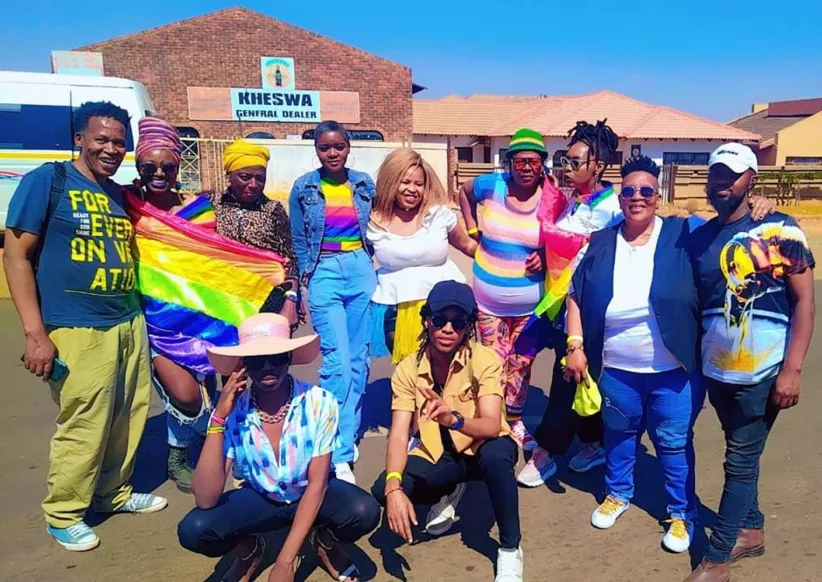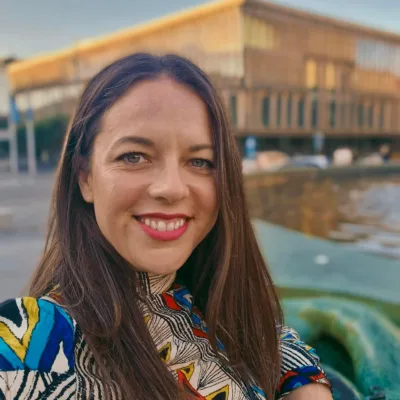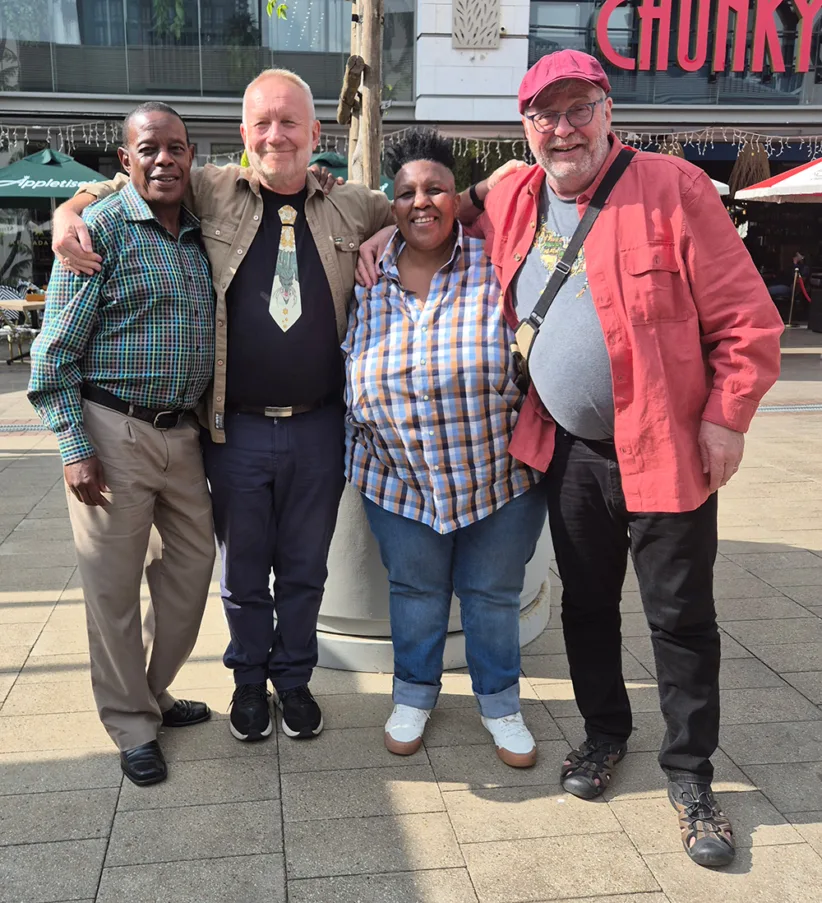Homophobia in the name of God
Conservative Christian groups in the United States are using the Bible to influence African politicians to implement harsh laws against the LGBTQ+ community. The result is a serious setback for human rights, quality of life, and the fight for equality.
By Sissel Fantoft

In 31 African countries, same-sex sexual activity is illegal. In Gambia, Sierra Leone, Sudan, Tanzania, Uganda, and Zambia, people can face life in prison. In northern Nigerian states, Somalia, and Uganda, homosexuality can be punished with death. In Mauritania, men can be sentenced to death for same-sex relations.
The so-called "pro-family" movement in the U.S. promotes a narrow definition of family: heterosexual couples with biological children. Evangelical conservative Christian groups unite to oppose abortion and to roll back LGBTQ+ and women’s rights.
Haley McEwen is a postdoctoral researcher at the Department of Political Science at the University of Gothenburg. She studies how American conservative Christians influence gender and sexuality policy in Africa. On September 17, she spoke at an event in Oslo co-hosted by Norwegian People's Aid Kristiania.
“I’m from the U.S. and was raised by two mothers. From a young age, I realized that many Americans have a rigid idea of what a family should be,” McEwen says.
“Christian groups are working to outlaw abortion, limit access to contraception, and restrict LGBTQ+ rights. It made me angry. How can they proudly call it ‘the land of the free’ while promoting such oppressive views?”
Working at the National Level
McEwen later moved to South Africa, where she completed a PhD in sociology. She is also the author of The U.S. Christian Right and Pro-Family Politics in 21st Century Africa.
"One of the key findings in my research is that U.S. Christian groups don’t just mobilize grassroots movements in African countries—they also work on a national level to influence political and religious leaders. They even try to sway UN decisions by lobbying against the inclusion of sexual and reproductive rights in international resolutions," she explains.
At the University of Gothenburg, McEwen now researches how these U.S.-based groups influence diplomacy between African countries.
"I try to uncover their strategies so we can better counter their campaigns. I’m both a researcher and socially engaged, and I find these messages truly alarming. It's dangerous to dismiss or ridicule them—they’re organized, well-funded, and very strategic," she says.
McEwen emphasizes that these evangelical groups with “anti-gender” views are highly coordinated.
“To push back, we need more proactive efforts—creating inclusive programs that promote and protect the rights and wellbeing of LGBTQ+ people and women. And we must keep a close watch on these anti-gender campaigns—who they are, what they’re saying, and what their next moves will be. Too often, the response comes too late. They’re laying rhetorical landmines for us to step on.”

One example is how these groups claim the moral high ground through their choice of labels.
"They call themselves ‘pro-family,’ while critics refer to them as ‘anti-gender.’ We’ve lost the word family to them,” McEwen says.
Shared Strategies
In many African countries, the arguments used to justify anti-LGBTQ+ laws echo those of American anti-gender activists.
"They say they want to protect the family, but they only mean heterosexual couples with biological children. They don’t care about anyone outside that mold. Often, they claim to speak for all Christians. That’s why it’s crucial for progressive religious leaders to speak out and show that’s not true," McEwen explains.
She also urges those working against the anti-gender movement to organize better.
"We need to exchange knowledge, build networks, and develop joint strategies,” she adds.

Olav André Manum, board member of the local chapter Norwegian People's Aid Kristiania and author of African Rainbows: LGBTQ Liberation in Africa, agrees that LGBTQ+ rights are under attack in many African countries.
“The evangelical influence from the U.S. helps create and maintain these oppressive conditions. They often work in alliance with African traditionalists and their organizations. This has devastating consequences for the lives of LGBTQ+ Africans. Ironically, some of the same people who criticize Western colonialism fully embrace these evangelical anti-LGBTQ+ ideologies.”
Manum believes the U.S. Christian right poses a serious threat to freedom of speech, freedom of assembly, and basic human rights for LGBTQ+ people in Africa.
"South Africa is something of a counterexample. In 1996, it became one of the first countries in the world to ban discrimination based on sexual orientation in its constitution and later legalized same-sex marriage,” he says.
Stronger Networks
Norwegian People's Aid Kristiania has long sought formal collaboration with the grassroots organization Ekurhuleni Pride Organizing Committee (EPOC) outside Johannesburg.
"They work to improve the rights and living conditions of LGBTQ+ people in these large Black townships. Their efforts are both passionate and vital,” says Manum.
The organization believes EPOC fits well under the Norwegian People's Aid umbrella.
"They create safe spaces for LGBTQ+ people, raise awareness, and organize an annual pride celebration in September to make their work more visible. We hope to support them by connecting them with trade unions and other South African groups already partnered with Norwegian People's Aid. Stronger networks—both for EPOC and other LGBTQ+ organizations across Africa—will help strengthen their important work,” Manum concludes.
